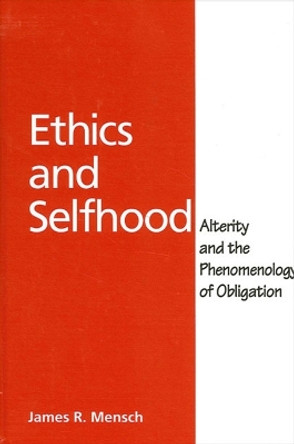Description
Reviews
Unusually perceptive and helpful. To read his argument with care is to have ones judgment sharpened and illumined ... This is a work of serious philosophical argument, well worth our taking seriously * Gilbert Meilaender, The New Atlantis *
[A] highly sophisticated book * Orion Edgar, Church Times *
James Mumfords Ethics at the Beginning of Life: A phenomenological critique (Oxford, 2013) is a remarkable piece of work. It is a phenomenological study of the ethical import of how we come into the world. It is phenomenological because it attends fixedly to the phenomena. By staring hard at the phenomenon of pregnancy, the realities of newones and newborns, Mumford concludes that we dont come into the world full-grown like Adam or Cadmus, but in radically particular, dependent, asymmetrical relationship. * Peter J. Leithart, First Things *
This book says something genuinely new, and provides a welcome intervention within the context of over-determined and intractable debates about the beginning of live. It deserves to be read carefully by anyone with interests in theological ethics, phenomenology, continental philosophy and human life. * Michael Mawson, Studies in Christian Ethics *
A deeply sophisticated argument about the character of our relation with unborn and newborn human beings. It challenges the models that have been allowed uncritical domination in a lot of recent ethical argument; and, without emotive pleading or overheated polemic, it insists that we look afresh at assumptions around abortion and the status of the unborn person, on the grounds of solid philosophical discussion as well as offering a rich and resourceful theological context for such a new look at the issues. This is a seriously impressive work. * Rowan Williams *
Skilful and original, a creative description of what Mumford calls the 'extraordinary encounter' of the 'newone'. This is a contribution both to moral philosophy and to phenomenology, a rare achievement. Mumford is a scholar equally at ease in the British and Continental tradition, he opens his readers eyes to many a fact which his predecessors have left unnoticed. The book is also the work of a good stylistreading -- it is sheer pleasure. * Jean Yves Lacoste *
Finally a book that offers a way to think about abortion that is an alternative to the language of past and present discussions. Drawing on the work of Merleau-Ponty, Mumford makes it possible for us to see how a mother's experience of her child is crucial for the recognition of our joint humanity. This is a brilliant book that has implications for how we think about a wide range of questions concerning our relation to one another. * Stanley Hauerwas *
Mumford's book is not only a very interesting contribution to the debate on the ethics of the beginning of life, but it is also an excellent example of scholarship on Continental philosophy. * Paolo Monti *
[Mumford] offers fresh arguments about how we relate to unborn and new-born human beings, challenging accepted ethical arguments and insisting that we look afresh at the assumptions we have made about abortion and the status of the unborn person. * Patrick Comerford, Search *
Book Information
ISBN 9780198745051
Author James Mumford
Format Paperback
Page Count 228
Imprint Oxford University Press
Publisher Oxford University Press
Dimensions(mm) 217mm * 140mm * 13mm







